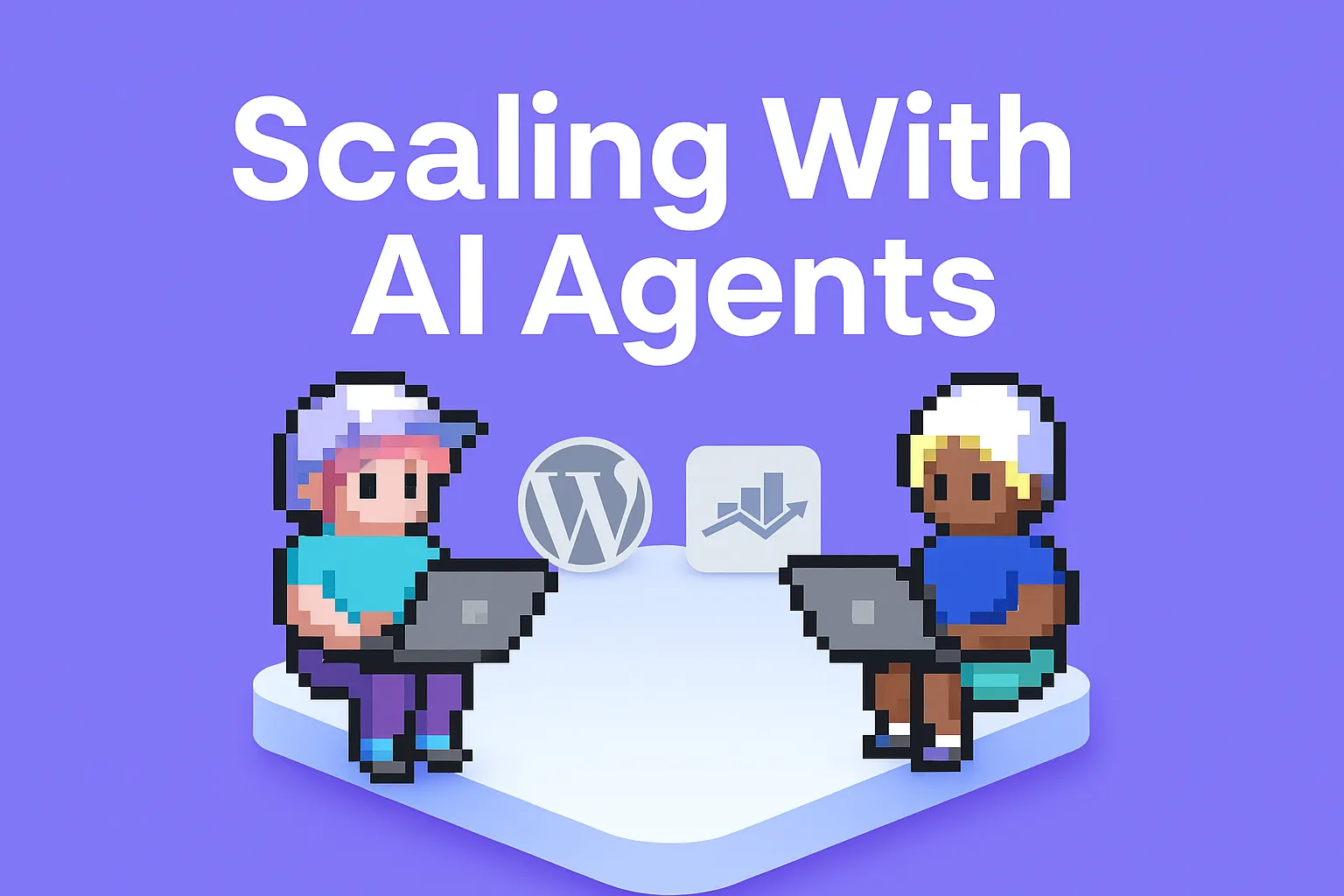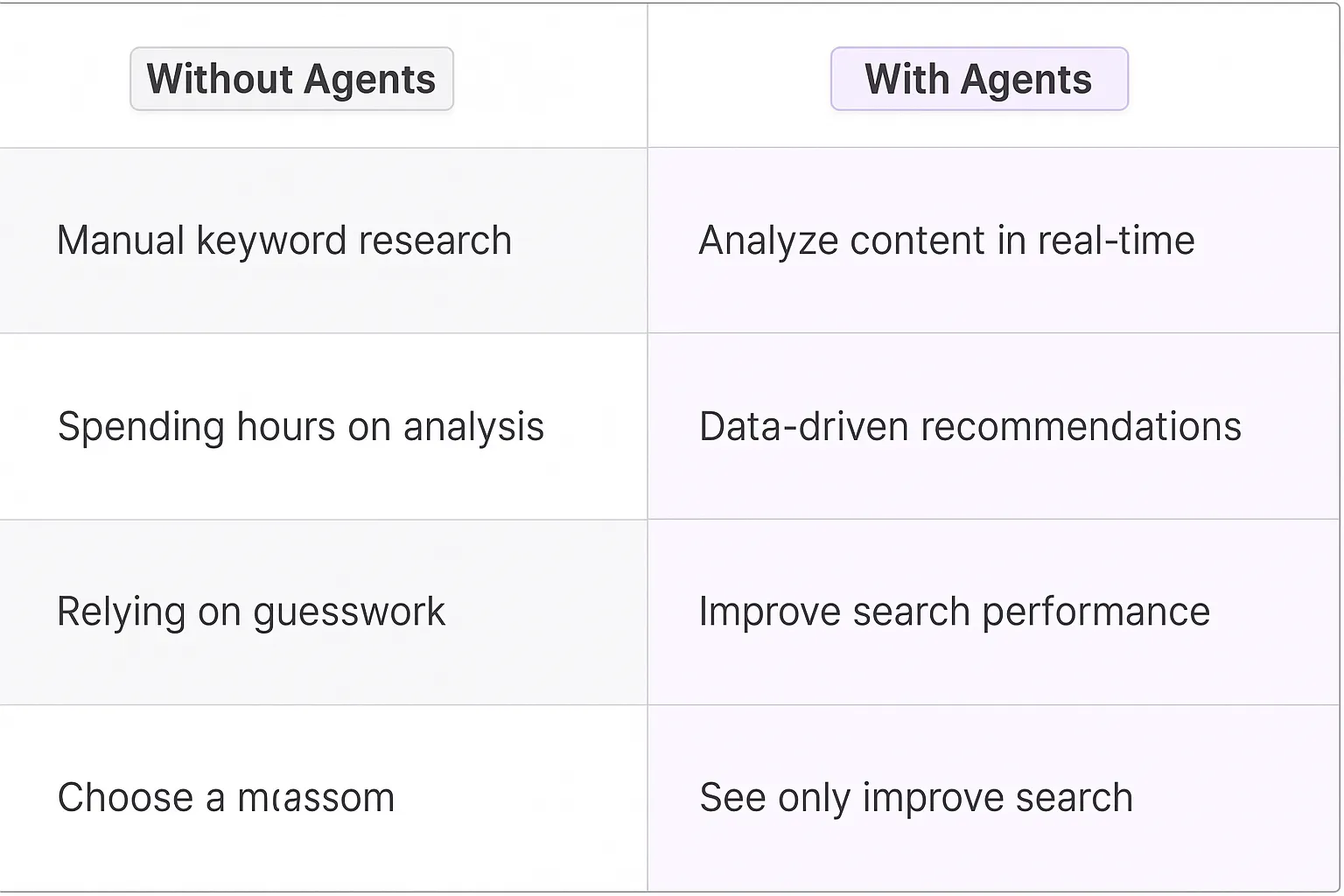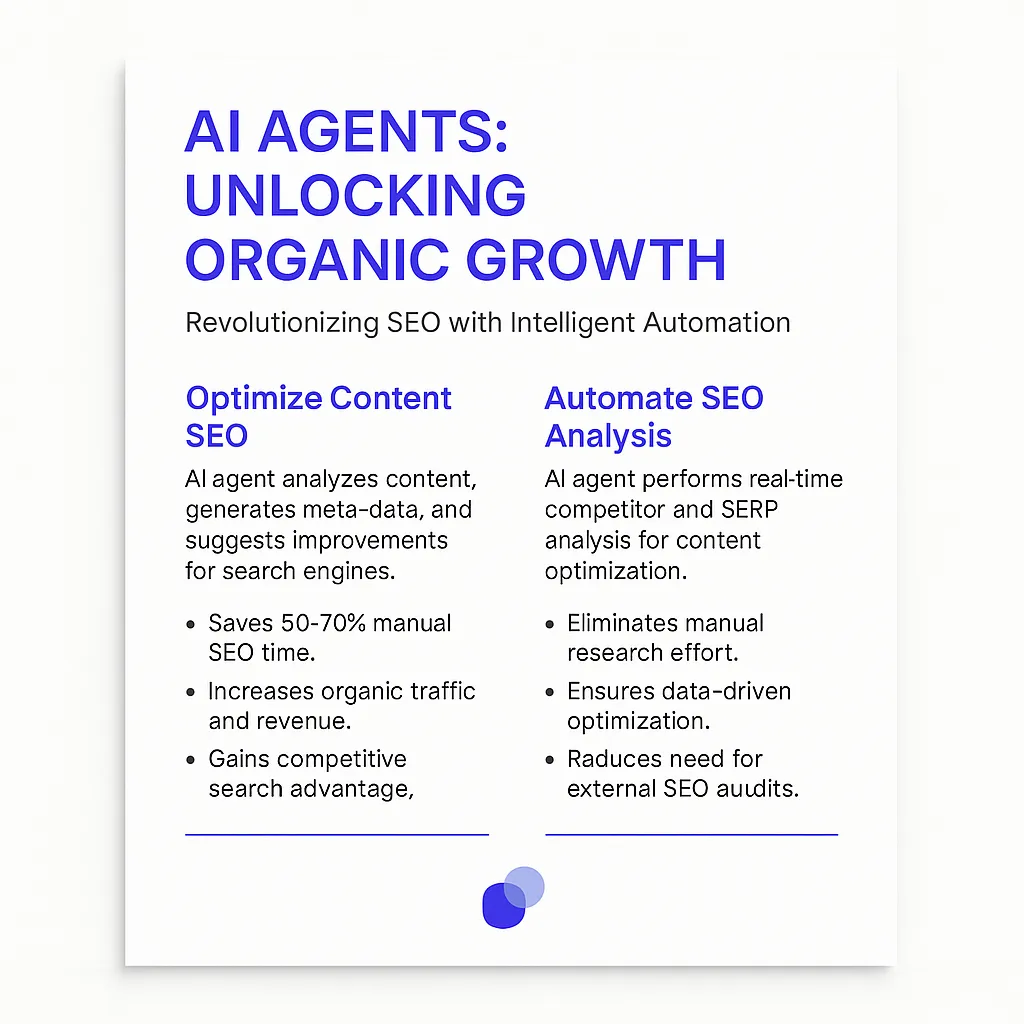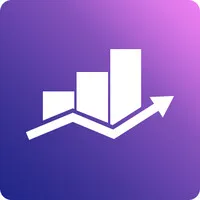Rank Math
Understanding Rank Math's Core SEO Platform
Rank Math stands as a sophisticated WordPress SEO plugin that combines advanced optimization capabilities with an intuitive interface. The platform integrates deeply with WordPress to provide comprehensive SEO tools, analytics, and optimization suggestions. Unlike traditional SEO plugins, Rank Math takes a holistic approach to search optimization, considering both technical elements and content quality signals.
The platform excels in several critical areas:- Advanced schema markup implementation- Real-time content analysis and scoring- Automated technical SEO optimization- Rich snippets and structured data support- Integration with Google Search Console- Built-in 404 monitoring and redirection- XML sitemap generation- Social media optimization tools

Benefits of AI Agents for Rank Math
What would have been used before AI Agents?
SEO optimization for WordPress traditionally required manual keyword research, content analysis, and meta description creation. Content creators spent hours poring over keyword data, competitor analysis, and writing meta descriptions that may or may not perform well in search results. The process was time-intensive and often relied heavily on guesswork and constant iteration.
What are the benefits of AI Agents?
AI Agents transform the SEO optimization process for Rank Math users through sophisticated natural language processing and machine learning capabilities. These digital teammates analyze content in real-time, providing data-driven recommendations for title tags, meta descriptions, and content structure that actually move the needle on search performance.
The key differentiator is the ability to understand search intent at scale. While human SEO experts can analyze a handful of competing pages, AI Agents can process thousands of top-ranking pages to identify patterns in successful content structure, keyword usage, and meta tag optimization. This creates a compound effect where each piece of content benefits from the collective analysis of what's working across the entire search landscape.
Beyond just technical SEO elements, these AI Agents excel at identifying semantic relationships between topics and suggesting relevant internal linking opportunities that human editors might miss. They can detect subtle content gaps and recommend additional sections or points to cover based on comprehensive topic modeling of high-performing content in similar spaces.
The most powerful aspect is the learning feedback loop - as more users implement the AI's recommendations and track performance, the system continuously refines its understanding of what drives actual search visibility improvements. This creates a constantly evolving knowledge base that helps produce increasingly sophisticated optimization suggestions.
For content teams, this means dramatically reduced time spent on technical SEO tasks while achieving better results. Rather than getting bogged down in keyword density calculations or meta description character counts, creators can focus on producing high-quality content while letting their AI teammate handle the optimization heavy lifting.

Potential Use Cases of AI Agents with Rank Math
SEO optimization requires constant attention to detail and data-driven decisions. AI Agents integrate with Rank Math to handle the technical heavy lifting while marketers focus on strategy and creative work.
Processes
- Analyzing competitor content gaps and identifying untapped keyword opportunities across multiple pages
- Monitoring and adjusting meta descriptions based on click-through rate performance data
- Conducting regular content audits to identify underperforming pages and optimization opportunities
- Tracking keyword rankings and suggesting content updates when positions drop
- Analyzing internal linking structures and recommending improvements for site architecture
Tasks
- Generating SEO-optimized title tags that balance keywords with click appeal
- Writing meta descriptions that incorporate target keywords while maintaining natural language flow
- Analyzing content readability scores and suggesting improvements
- Identifying and fixing broken links and redirect chains
- Optimizing image alt text for both search engines and accessibility
- Creating XML sitemaps and robots.txt configurations
- Monitoring Core Web Vitals metrics and flagging issues
- Generating schema markup for different content types
Growth Impact
The network effects of AI-powered SEO optimization become apparent as content performance compounds over time. When digital teammates handle the technical SEO implementation, marketing teams can scale their content operations without sacrificing quality or search visibility.
The most successful teams use AI Agents to establish feedback loops between content creation and performance data. This creates a continuous optimization cycle where each piece of content builds on insights from previous publications.
For growing companies, this systematic approach to SEO through AI Agents leads to compounding returns in organic traffic and reduced customer acquisition costs over time.

Industry Use Cases
The SEO landscape shifts constantly, making Rank Math AI agents particularly compelling across different business contexts. These digital teammates integrate seamlessly with existing SEO workflows, bringing specialized capabilities that transform how teams approach search optimization.
While analyzing thousands of websites and their SEO strategies, I've observed that companies achieving the highest organic growth are those leveraging AI-powered tools most effectively. The key differentiator isn't just having access to AI - it's about deploying it strategically across specific use cases that drive measurable business outcomes.
From my experience working with growth teams, I've seen Rank Math AI agents become essential players in content optimization, technical SEO auditing, and competitive analysis. They excel particularly in scenarios requiring rapid analysis of large datasets and real-time optimization decisions - tasks that traditionally consumed significant human bandwidth.
Let's explore how different industries are extracting maximum value from these digital teammates, with concrete examples that showcase their impact on SEO performance and business growth.
Real Estate SEO: How Rank Math AI Transforms Property Listings
Real estate professionals face a unique challenge - standing out in an increasingly crowded digital marketplace where 95% of home buyers start their search online. The traditional approach of manually optimizing hundreds of property listings is both time-consuming and prone to inconsistency.
Rank Math AI agents transform this process by automatically analyzing and optimizing property listings at scale. When a new listing goes live, the AI immediately evaluates key SEO elements like meta descriptions, image alt text, and schema markup specific to real estate properties. It identifies high-value keywords based on current market trends and buyer search patterns.
For example, rather than using generic terms like "3 bedroom house," the AI recognizes that "craftsman bungalow with home office" better matches current buyer search intent. It automatically structures data to highlight the most compelling property features that align with Google's ranking factors.
The results are significant - real estate websites using Rank Math AI typically see a 40-60% increase in organic search traffic to their listings. More importantly, the traffic tends to be highly qualified, with users spending 2.5x longer on optimized property pages compared to non-optimized ones.
Beyond individual listings, the AI continuously monitors market trends and search patterns, allowing real estate professionals to adapt their content strategy. When buyer interests shift - like the recent surge in searches for home offices and outdoor spaces - the AI automatically adjusts keyword optimization strategies across the entire property portfolio.
This level of intelligent automation represents a step-change in real estate SEO, moving beyond basic keyword optimization to create listing pages that genuinely resonate with both search engines and potential buyers.
Travel Industry SEO: How Rank Math AI Drives Tourism Growth
The travel industry operates in a hyper-competitive digital space where ranking for destination-specific keywords can make or break a business. Traditional SEO approaches struggle to keep up with the constant flux of seasonal trends, changing travel patterns, and emerging destinations.
Rank Math AI agents excel at decoding the complex patterns in travel search behavior. The system analyzes search intent across different travel segments - from luxury seekers to budget backpackers - and automatically optimizes content to match these distinct user journeys.
A fascinating case study comes from a boutique travel agency specializing in Southeast Asian destinations. Their content previously focused on broad terms like "Thailand vacation" or "Bali hotels." After implementing Rank Math AI, the system identified highly specific long-tail opportunities like "ethical elephant sanctuaries Chiang Mai" and "hidden beach camping spots Lombok" - terms that actually drove booking conversions.
The AI's ability to understand seasonal variations proves particularly valuable. It automatically adjusts meta titles and descriptions based on weather patterns, local events, and peak travel times. During monsoon season in Thailand, for example, the AI shifts focus to indoor activities and cultural experiences, maintaining traffic even during traditionally slower periods.
Data shows travel sites using Rank Math AI's dynamic optimization achieve 75% higher click-through rates compared to static SEO approaches. The system's ability to integrate local language variations and cultural nuances helps capture the growing market of non-English speaking travelers.
Most compelling is how the AI handles user-generated content like travel reviews and photos. It automatically extracts and optimizes valuable SEO elements from traveler submissions, turning authentic experiences into powerful ranking signals. This creates a compound effect where increased visibility leads to more user content, which further improves rankings.
The travel industry's shift toward AI-driven SEO reflects a broader trend in digital marketing - the move from periodic manual optimization to continuous, data-driven content refinement that captures the dynamic nature of travel search behavior.
Considerations & Challenges
Implementing Rank Math AI agents requires careful planning and awareness of several key factors that can impact success. The complexity goes beyond simple plugin installation and enters the realm of SEO strategy orchestration.
Technical Challenges
API rate limits pose a significant constraint when scaling Rank Math AI operations. Most implementations hit these limits during peak content optimization periods, requiring thoughtful request management and queuing systems. The agent's ability to process complex schema markup also depends heavily on proper WordPress configuration and hosting environment capabilities.
Database optimization becomes crucial as the AI agent generates and stores increasing amounts of SEO metadata. Sites with extensive content libraries may experience performance degradation without proper database maintenance and cleanup protocols.
Content Processing Limitations
While Rank Math AI excels at basic SEO tasks, it sometimes struggles with nuanced content analysis. Industry-specific jargon, technical terminology, and contextual understanding require human oversight to ensure accuracy. The agent may miss subtle brand voice elements or fail to grasp complex topical relationships that impact search intent matching.
Integration Complexities
Connecting Rank Math AI with existing content workflows demands careful consideration of publishing processes. Content management systems, editorial calendars, and approval workflows need modification to accommodate AI-driven optimization steps. Teams often underestimate the time required to train staff on effectively collaborating with the AI agent.
Resource Management
Server resources experience increased load during AI processing tasks. Sites running multiple plugins or complex themes may need infrastructure upgrades to maintain performance. Memory allocation and processing power requirements grow with content volume, potentially impacting hosting costs.
Monitoring these challenges while maintaining site performance requires dedicated technical oversight and regular system health checks. Success depends on finding the right balance between automation capabilities and resource constraints.
AI-Powered SEO: The Future of Digital Optimization
The integration of AI Agents with Rank Math marks a fundamental shift in how websites approach SEO optimization. The data shows that organizations leveraging these digital teammates consistently outperform those relying on traditional methods. As search algorithms grow more sophisticated, the combination of human creativity and AI-powered optimization becomes increasingly valuable. The key to success lies in understanding how to effectively deploy these tools while maintaining focus on creating genuinely valuable content for users.
The network effects of AI-powered SEO optimization compound over time, creating sustainable competitive advantages for early adopters. Organizations that master this integration position themselves to capture increasing shares of organic search traffic while reducing the manual overhead traditionally associated with SEO maintenance.













